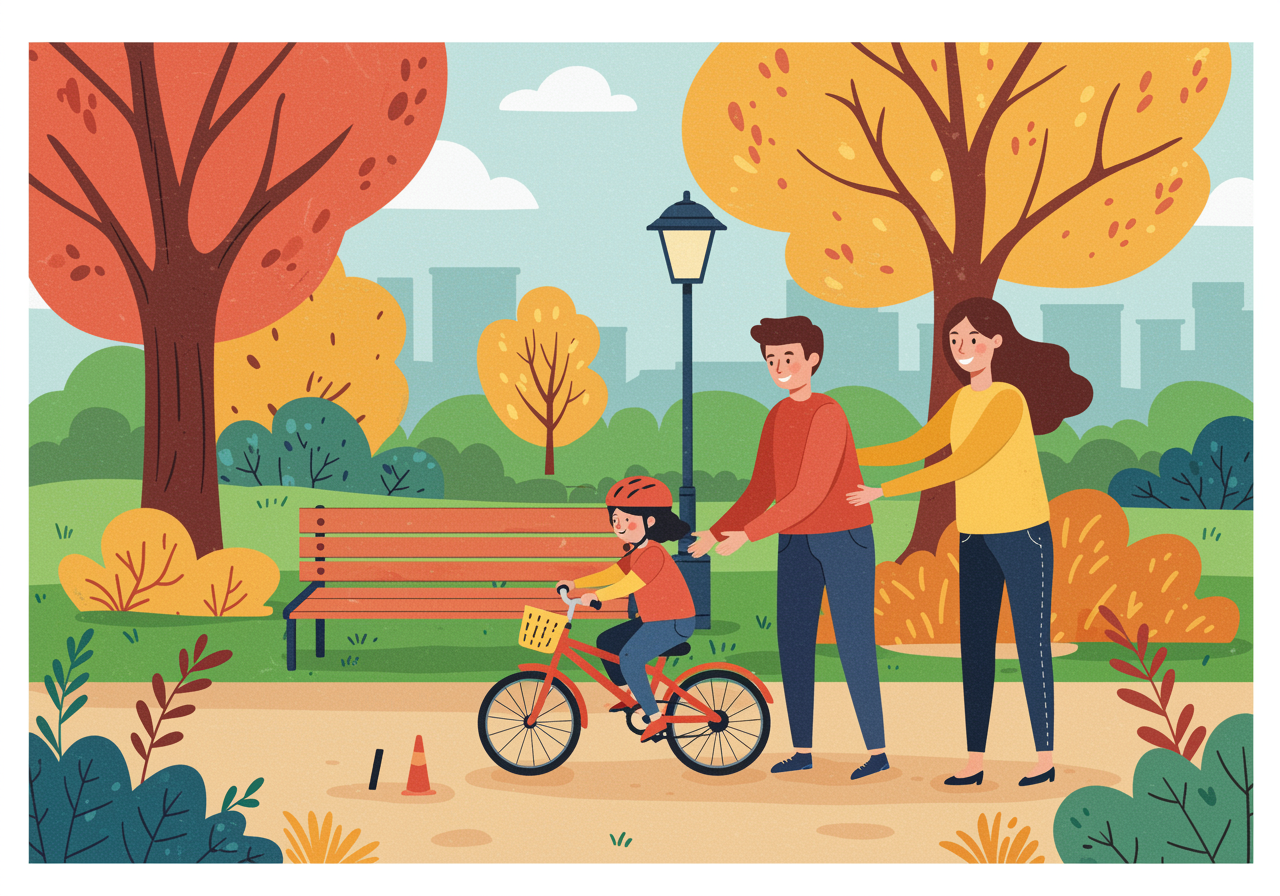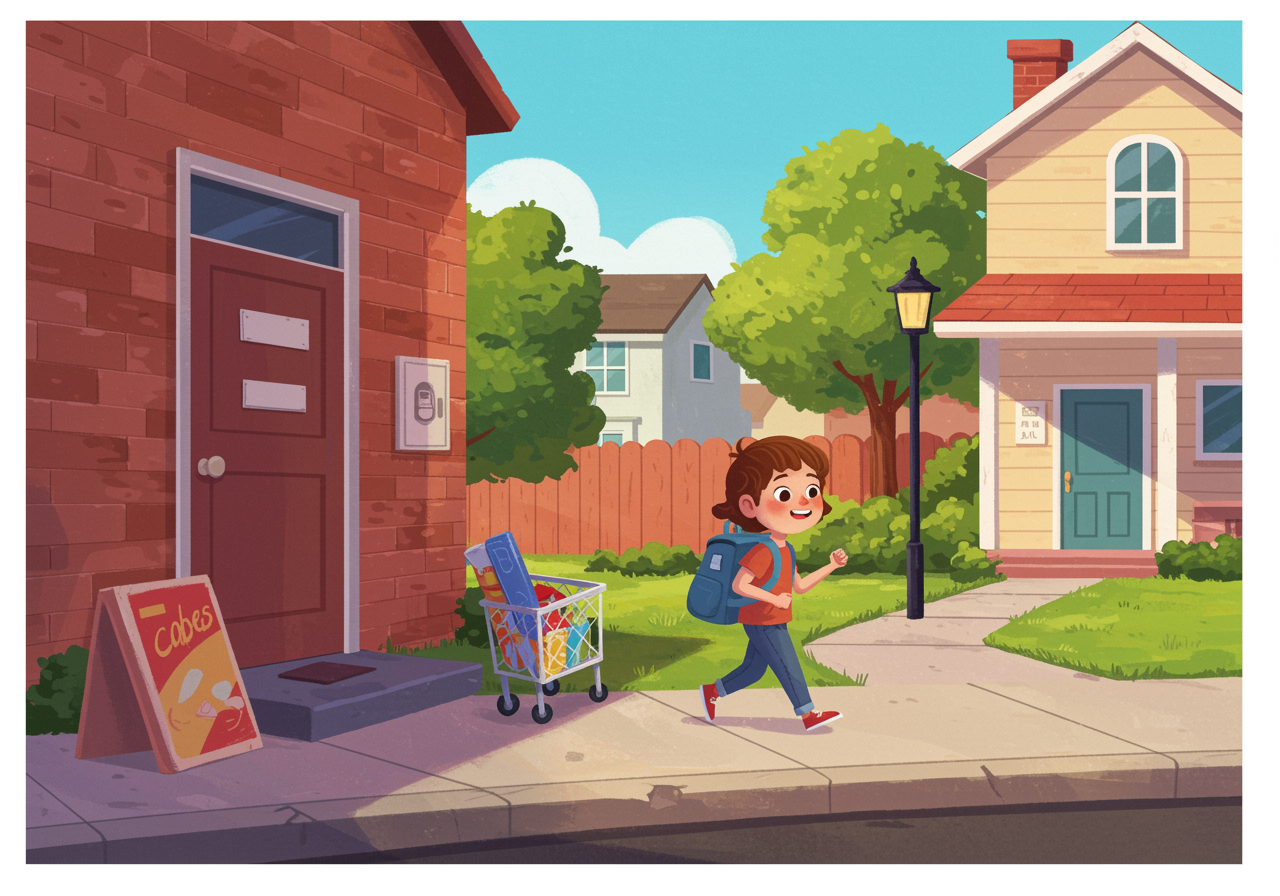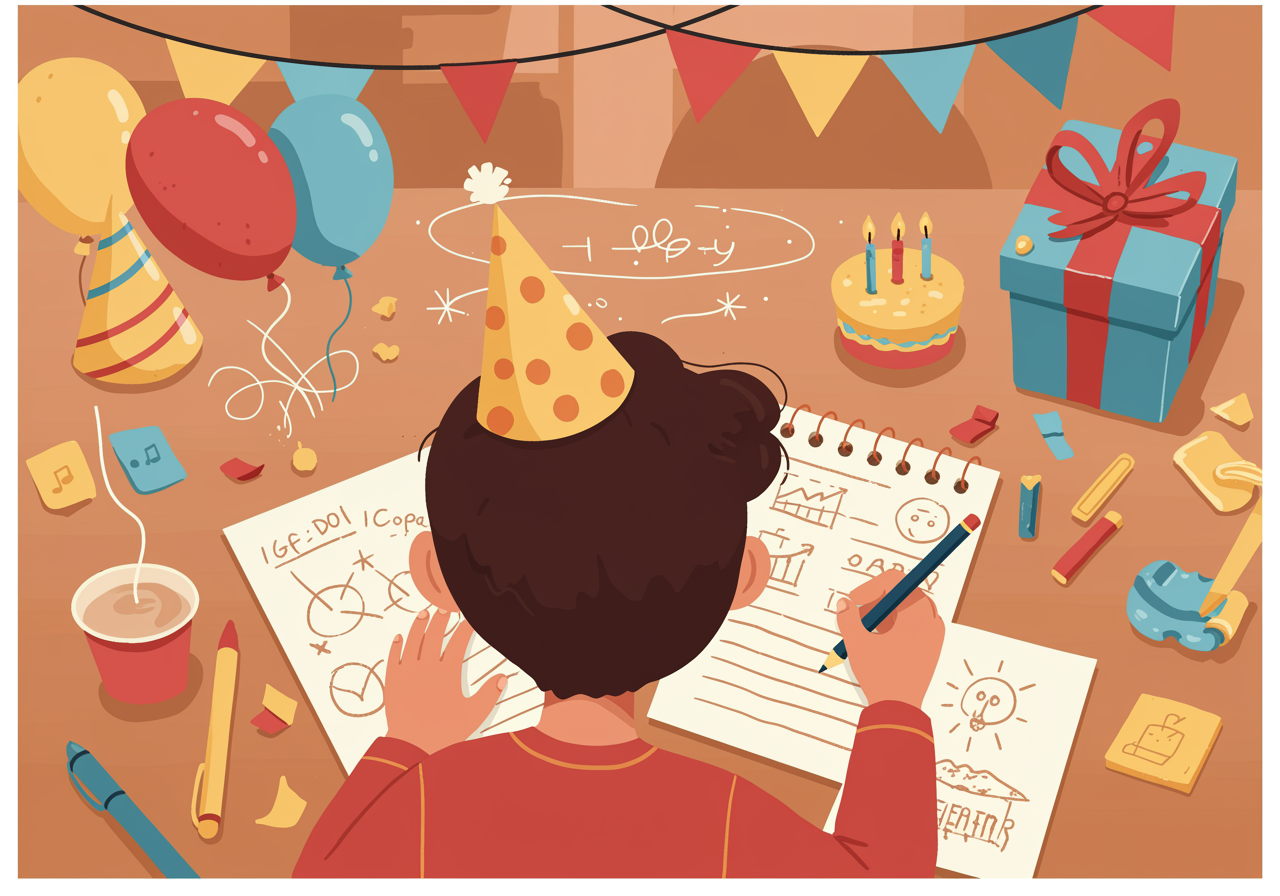Freedom to Fly: How Kids Learn to Soar by Spreading Their Wings

The secret sauce behind raising confident, capable, and responsible humans
Discover why giving your child more independence isn’t scary—it’s the key to building the confident, decision-making superstar they’re meant to become.
Overview
Think about learning to ride a bike—at some point, someone has to let go of the back seat! Giving kids freedom to explore isn't about throwing caution to the wind; it's about creating safe spaces where they can practice making decisions, learn from mistakes, and build the confidence they'll need as adults. When we gradually increase their independence, we're basically giving them a practice run at life while we're still there to catch them if they fall. It's like training wheels for adulting!

Understand in 30 Seconds
Get up to speed quickly
- Practice Makes Perfect: Kids need to practice making decisions while the stakes are still low. Better to learn from small mistakes now than big ones later!
- Confidence Comes from Competence: When kids successfully handle freedom, they build self-confidence and trust in their own abilities to navigate challenges.
- Mistakes Are Data, Not Disasters: Every 'oops' moment is actually valuable information that helps kids make better choices next time.
- Trust is a Two-Way Street: Kids who are trusted with age-appropriate freedom learn to be trustworthy and develop stronger relationships with their parents.
Real Life Scenario
Situations you can relate to
Imagine your child wants to walk to the corner store alone for the first time. Your heart might race a little—what if they get lost? What if something happens? But here's the thing: this isn't just about buying milk. It's about your child learning to navigate the world, make decisions (which route to take, how to interact with the cashier), and handle unexpected situations. When they return home successfully, they've just leveled up their confidence and proven to themselves (and you) that they can handle responsibility. Have you ever noticed how proud kids look when they accomplish something independently? That's not just happiness—that's the building blocks of self-reliance being constructed in real time.

Role Play
Spark a conversation with “what if” scenarios
What if your teen wants to plan their own birthday party?
- Role play: Let them take the lead on planning while you act as their 'consultant.' Ask questions like 'What's your budget?' and 'How will you handle RSVPs?' Guide them through the thinking process without taking over.
What if your child wants to choose their own extracurricular activities?
- Role play: Sit down together and explore options. Let them research different activities, weigh pros and cons, and make the final decision. Your job is to ask thoughtful questions, not make the choice for them.
What if your teen wants to manage their own homework schedule?
- Role play: Work together to create a system, then step back and let them run it. Check in weekly to see how it's going and problem-solve together if needed, but resist the urge to micromanage.
FAQs
Frequently asked questions people want to know
How do I know if I'm giving too much freedom too fast?
Start small and build gradually. If your child consistently handles small freedoms well, they're ready for bigger ones. If they struggle, take a step back and try again later.
What if my child makes a bad decision with their new freedom?
That's actually the point! Mistakes are learning opportunities. Talk through what happened, what they learned, and how they might handle it differently next time.
How is this different from just letting kids do whatever they want?
Freedom with boundaries is different from free-for-all. It's about age-appropriate independence within clear, consistent limits that keep everyone safe.
Examples in the Wild
See how this works day to day
- Research from the University of Minnesota found that teens who had more autonomy in decision-making showed better academic performance and mental health outcomes. (University of Minnesota Child Development Study)
- A 2019 study showed that children who walked to school independently had better spatial navigation skills and increased physical activity levels. (Journal of Environmental Psychology)
- Countries like Denmark and Netherlands, which give children more independence from a young age, consistently rank among the happiest nations with high levels of trust and social responsibility. (UNICEF Report on Child Well-being)
- Silicon Valley executives are increasingly sending their children to low-tech schools that emphasize independent thinking and problem-solving over structured activities. (New York Times Education Report)
In Summary
What you should know before you start
- Freedom builds confidence through successful independent experiences
- Mistakes are valuable learning opportunities that build resilience
- Gradual independence prepares kids for adult responsibilities
- Trust between parents and children strengthens when freedom is earned and respected
Pro-tip for Parents
You got this!
When your child asks for more freedom, resist the urge to immediately say yes or no. Instead, ask 'Help me understand why this is important to you' and 'How do you think we can make this work safely?' This turns the conversation into collaborative problem-solving rather than a power struggle. Remember, your goal isn't to protect them from every possible mistake—it's to help them develop the skills to handle whatever life throws their way.

Keep an Eye Out For
Find these examples in everyday life
- News stories about young entrepreneurs or teen inventors who started with small projects their parents supported
- Times when your child successfully handles a responsibility without being reminded
- Moments when your child comes to you for advice rather than waiting to be told what to do
Explore Beyond
Look up these related research topics
- How different cultures around the world approach childhood independence
- The psychology of risk-taking and why it's important for development
- How to build resilience in children through manageable challenges